The End of Thrones
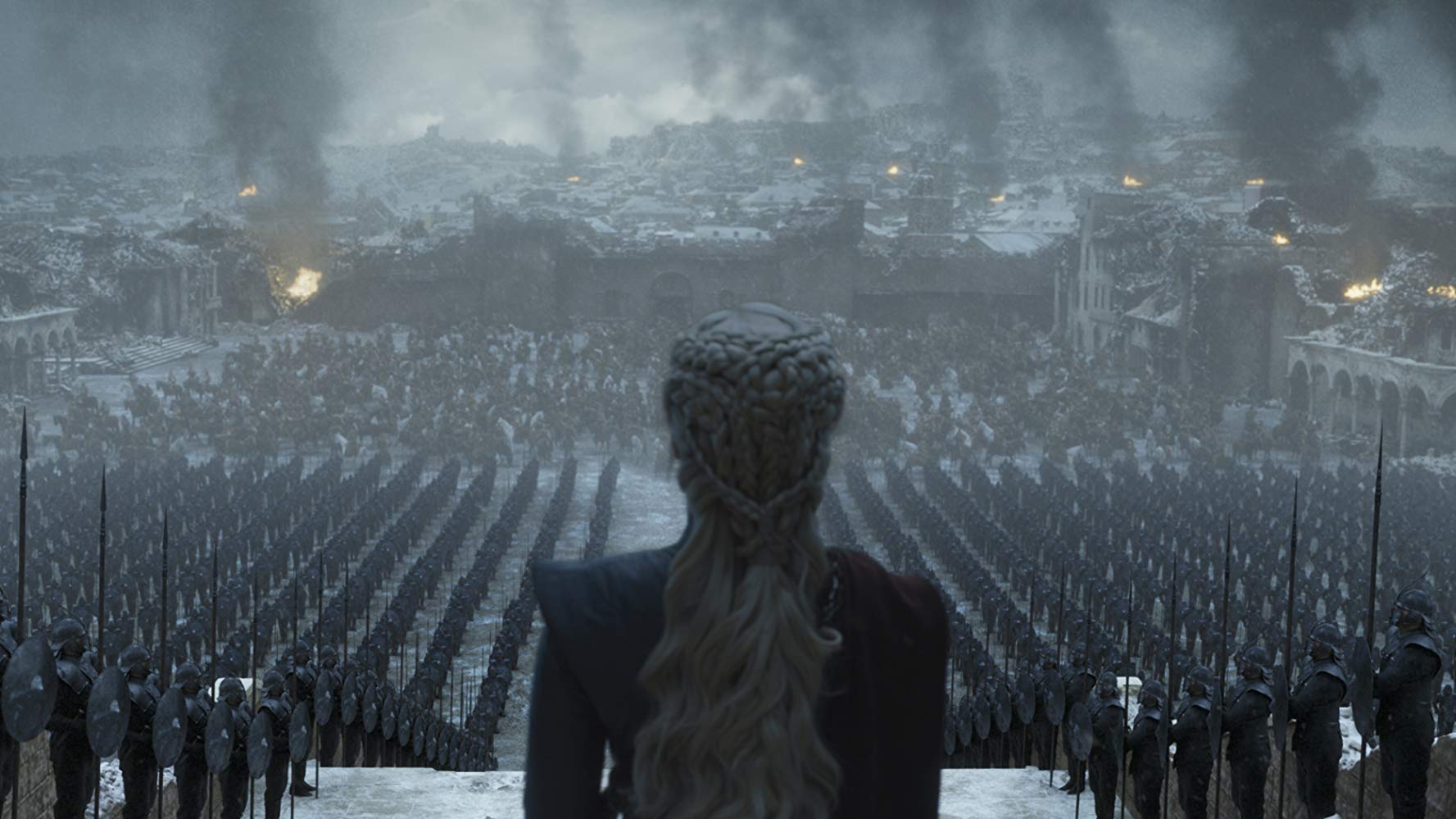
Game of Thrones’ final season has baffled, angered, thrilled and depressed viewers, which is fitting as it’s a show that has done all of that through its 73 episodes, but now it's come to an end.
It’s always a bit difficult to grapple with the end of a show, but Game of Thrones is in its own realm. The show is a behemoth, one that has taken over the cultural landscape. Other than President Trump, Game of Thrones is one of the few things the media can bank on to draw in attention (and those sweet, sweet ad impressions).
It’s also what the competition is gunning for. As we enter a world filled with streaming services, everyone wants a Game of Thrones to hang their hat on. Jeff Bezos has wanted a Game of Thrones for Prime Video for a couple years now, which is why it’s spending big on its Lord of the Rings adaptation (it's even hired Bryan Cogman, a key piece of the GoT puzzle, to work on the show). Disney has the Star Wars-based The Mandalorian up its sleeve while Netflix will keep trying to churn things out and hope they land as big as GoT.
HBO is also sweating bullets, preparing a number of spinoffs and running ads that basically scream “please don’t cancel your subscription, look at all the shows we have coming!” We haven’t seen anything like this show in quite a while, with maybe Breaking Bad coming closest to this level of cultural dominance on TV.
It also may be the last time we have a show that’s able to capture our attention on a weekly basis at this scale. Streaming services are following Netflix's dump-it-all-binge-it-now model, which allows you to get your fill, but also cuts off larger public discussions and anticipation.
And boy, that public discussion has been heated this final season.
Out of that anger comes a number of theories about these final two seasons: David Benioff and DB Weiss (D&D) are tired of the show, they didn’t know how to end it, they want to go make Star Wars, etc. It’s worth taking a look at these theories, because they come from a real place. However, a lot of them don’t hold up to scrutiny.
We know that HBO wanted more episodes and D&D wanted a shorter amount, with the official line being that they believed they had enough story for two shortened seasons. We also know that despite being 6 episodes, the final season’s running time is equal to 8 episodes.
It seems unlikely that D&D were literally rushing through the writing of the final season. It took two years to put together the final season, which included using 55 days to shoot the Battle of Winterfell. That doesn’t sound like something you’d do if you were rushing to put out a final season. It’s also unlikely that D&D were rushing to go make their new Star Wars trilogy.
D&D were hired to make a Star Wars trilogy a long while ago, and just last year Disney scrapped their Star Wars plans after the underperformance of Solo. It’s more likely that Disney went and took a look at its larger Star Wars strategy and then decided, in 2019 or late 2018, to date the D&D Star Wars trilogy, which is well after the final season of Game of Thrones was written and shot.
But did they know how to end it? We know that author George RR Martin has met with the duo and revealed where he was going, including three “holy shit” moments that they needed to hit on the way. We don’t exactly know what those moments are, but we do know that they likely knew how to end the show. What we don’t know is whether they knew how to get there.
George RR Martin the Gardener
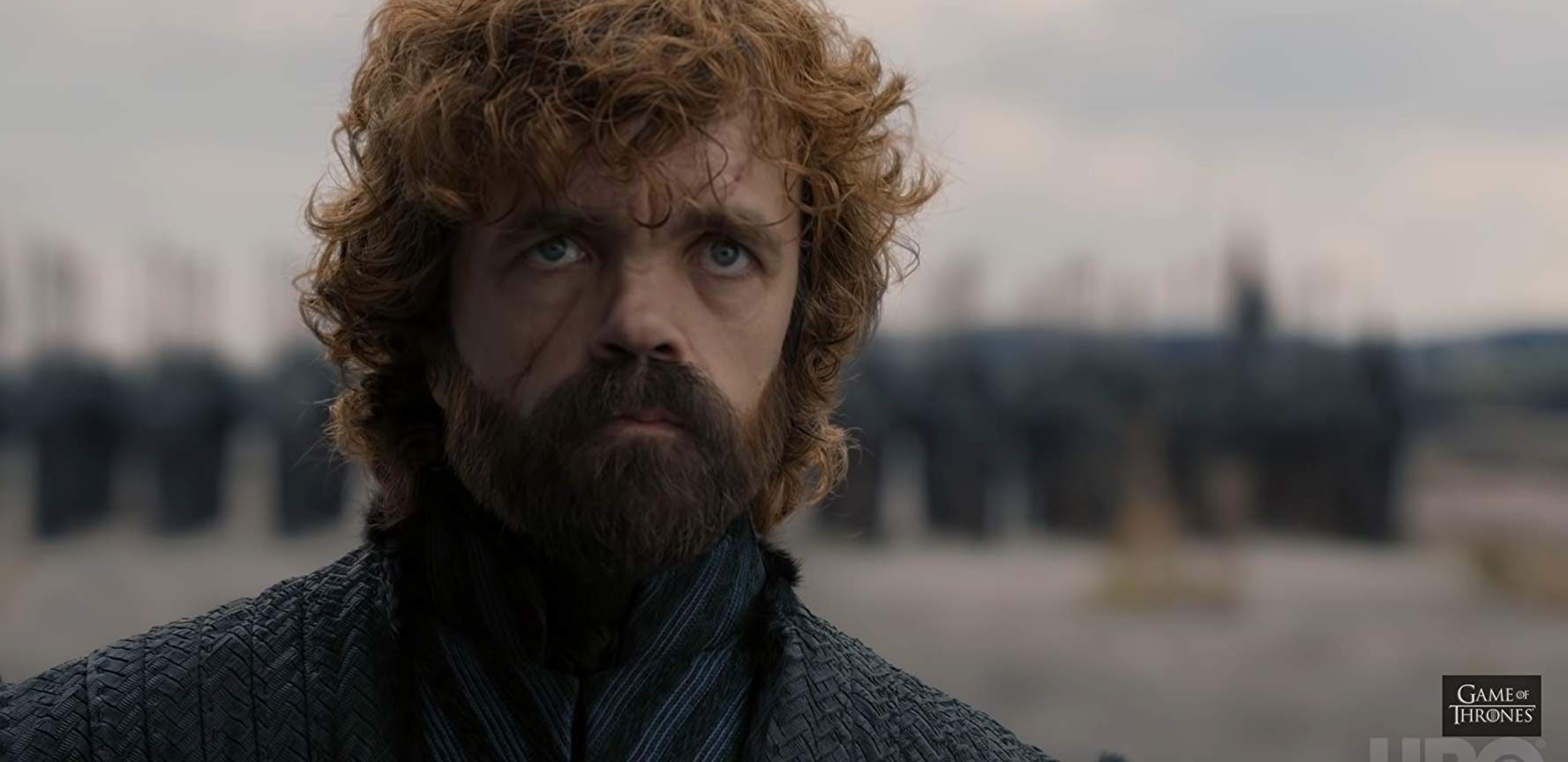
There are two kinds of writers, according to Martin. There are gardeners and architects. Architects outline their stories and make sure everything connects, then they go ahead and do the work of writing. Just like an architect knows what they're building before they go and build it. This results in structually sound stories.
Gardeners, on the other hand, don't outline. They build out their characters and they just write, organically going wherever the story and characters lead them. Just like watering a plant and watching it grow. Gardeners just attempt to push things in a direction. Martin is a gardener.
The difficulty of adapting Game of Thrones is that Martin is a gardener. Not only is he a gardener, his garden is 14 acres and filled with all sorts of flowers and plants and trees. D&D had signed up to bring that adapt the garden, assuming he'd have everything sorted out. Take a look at D&D's initial pitch to HBO:
"The story is unmarked by the unavoidable compromises that come with writing against a ticking clock. George has thought this story through with a focus and consistency of vision that is simply impossible in a normal television context. All the suspence for [GoT viewers], none of the uncertainty for us."
Whoops.
As we know, the show outpaced Martin. D&D did an excellent job adapting Martin's work, it's the reason a lot of people fell in love with the show in the first place. But that runway ran out, and D&D were left figuring out how to proceed without Martin. You can also see this in the show's credits, as Martin stopped writing for the show after Season 4, likely so he could go off and finish the books.
D&D were in a terrible, no-win position. They had to try to get to Martin's end, but they had to do that themselves. It seems as if D&D realized that there was no way they'd match Martin's path and decided to make it their own. D&D like spectacle, they like big drama and big moments, so they went and did Game of Thrones in the way that suited their talents - which, in theory, makes sense as they're no longer adapting something but doing what is as close to original work as possible.
This was a fatal mistake, as what they didn't realize is that for much of it's existence the show took the format of a pressure cooker. There was a reason there's so much travel in earlier seasons, where characters could spend time with each other and talk, sharing their hopes and fears and running into all sorts of adventures as they tried to accomplish their goals.
As the show wore on, travel times seemed instant, and all those moments for characters to unwind disappeared. There was less time for the show to slowly build, only to explode into big moments like The Red Wedding, The Purple Wedding, Oberyn v The Mountain and more.
I'm not so sure this is all about rushing through the plot, I think it's more down to priorities. D&D wanted to focus on the big stuff, especially after extremely succesful Battle of the Bastards. They went for big, epic battles and amazingly realistic CGI dragons. They wanted the scale of the biggest blockbusters on a TV show. That, in and by itself, is a massive accomplishment and it should be lauded for changing TV forever. The bar is forever raised, but it came at the detriment of the show, which went from incredible to good - and that deflation is what is causing so many people to be disappointed.
The Beginning of the End
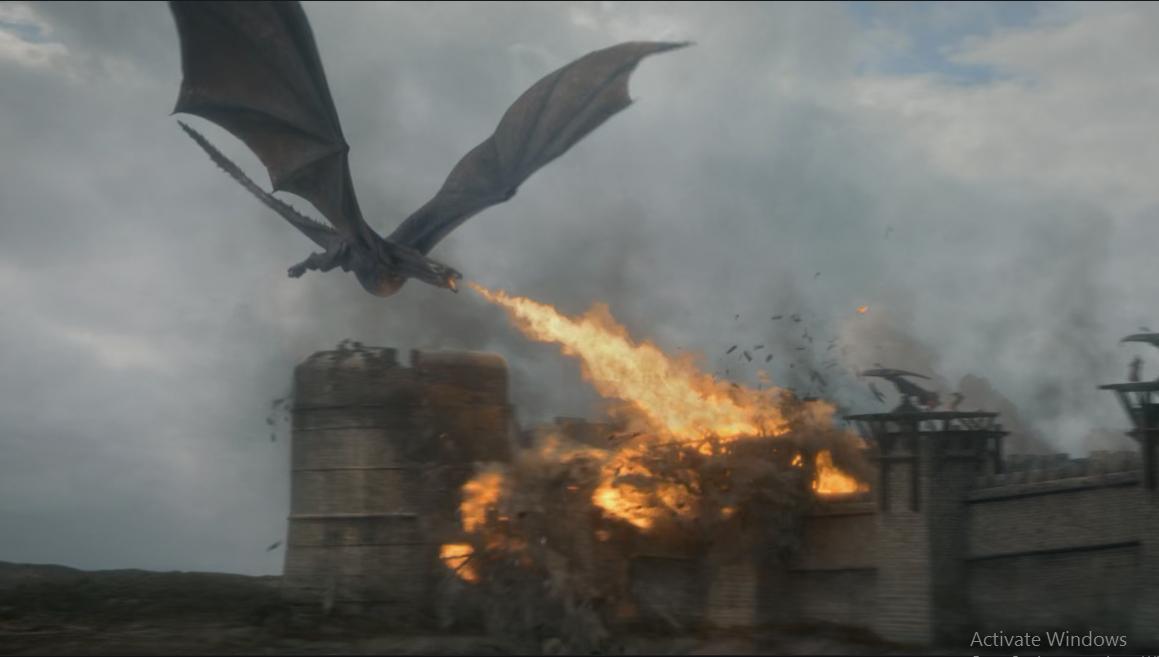
The final season of Game of Thrones is filled with wonderful moments, it even has a great character-centric episode in A Knight for the Seven Kingdoms. That episode is down to Bryan Cogman, a one-time assistant on the show who became its heart. You should really read this Vanity Fair piece about him, as he was heavily responsible for the character driven moments in the show, while D&D preferred to write the season premiers, finales and big spectacles.
For the most part, most of the storytelling decisions in the final season are the right ones.
Sansa has spent years taking abuse from some of the most cunning characters in the show. She was routinely schooled by Cersei, before being a pawn for Littlefinger and at the mercy of Ramsay. She also spent quite a bit of time with Tyrion, and she learned how to play the game from all of these characters. Starting as naive, she became one of the most intelligent characters on the show. Queen of the North is a fitting end for her, though I was rooting for her to sit on the Iron Throne.
Arya follows a similar trajectory, using her ninja skills to evade the dead in the best sequence from The Long Night. She even went and killed The Night King. And while running and jumping at him from behind and then switching hands is a cool moment, it would have been nice that scene be a little more clever. You know, like when she killed Walder Frey after feeding him his children in a pie. But I suppose Frey is a man and The Night King is something else. Back when Arya was with the theater troupe, she expressed interest in finding out what's west, and now with everything done and the desire for revenge wiped from her palette, it's only fitting that she goes out and charts her own course, finding new adventures (let's hope an Arya spinoff is in the works).
As for The Night King, there's a bit of whiplash that follows his demise. The show built him and the White Walkers as the ultimate threat - so much so that many people thought Game of Thrones was an allegory for climate change. Seeing the show pivot from The Night King to Cersei so quickly is one of the decisions that makes people feel like D&D were rushing things.
This is a show that wasn't afraid of taking long gaps between big moments. In fact, it's big moments often happened in Episode 9 so that Episode 10 could let the characters breathe a bit and set up the next season. This is why Cogman pushed for Ned Stark to die in the penultimate episode of Season 1, and why the show followed that template ever since.
Now, technically the show attempts this. The Night King is vanquished and then we have three episodes until the end of the show. But those three episodes, which have the runtime of four episodes, pack in a lot of action - a pace that's unprecedented in the history of the show.
This would be fine if the show had this pace for a good while, but it didn't. The first three episodes of the final season had a slower pace than the final three, which makes it feel like the show is accelerating more quickly as it goes, which hurts the viewer.
The viewer has no time to breath. I'm not one of those who think they needed more episodes, I'm of the believe they had the time, and just needed to better balance it. If D&D had re-prioritized, cutting back on the length of battles (which take up a huge chunk - if not all - of two of the final six episodes) and increasing character time, things might have been much, much better.
Instead, viewers get one post-mortem episode that, at the same time, is a pivot to Cersei. The show does try to point this out, as Sansa rightly points out that everyone is exhausted and that maybe they should all take a breather before turning to Cersei.
The breather would have been helpful, as it would let us take true stock of how many people were lost and weigh the odds of going up against Cersei so soon after what is likely the most difficult battle Westeros has ever seen.
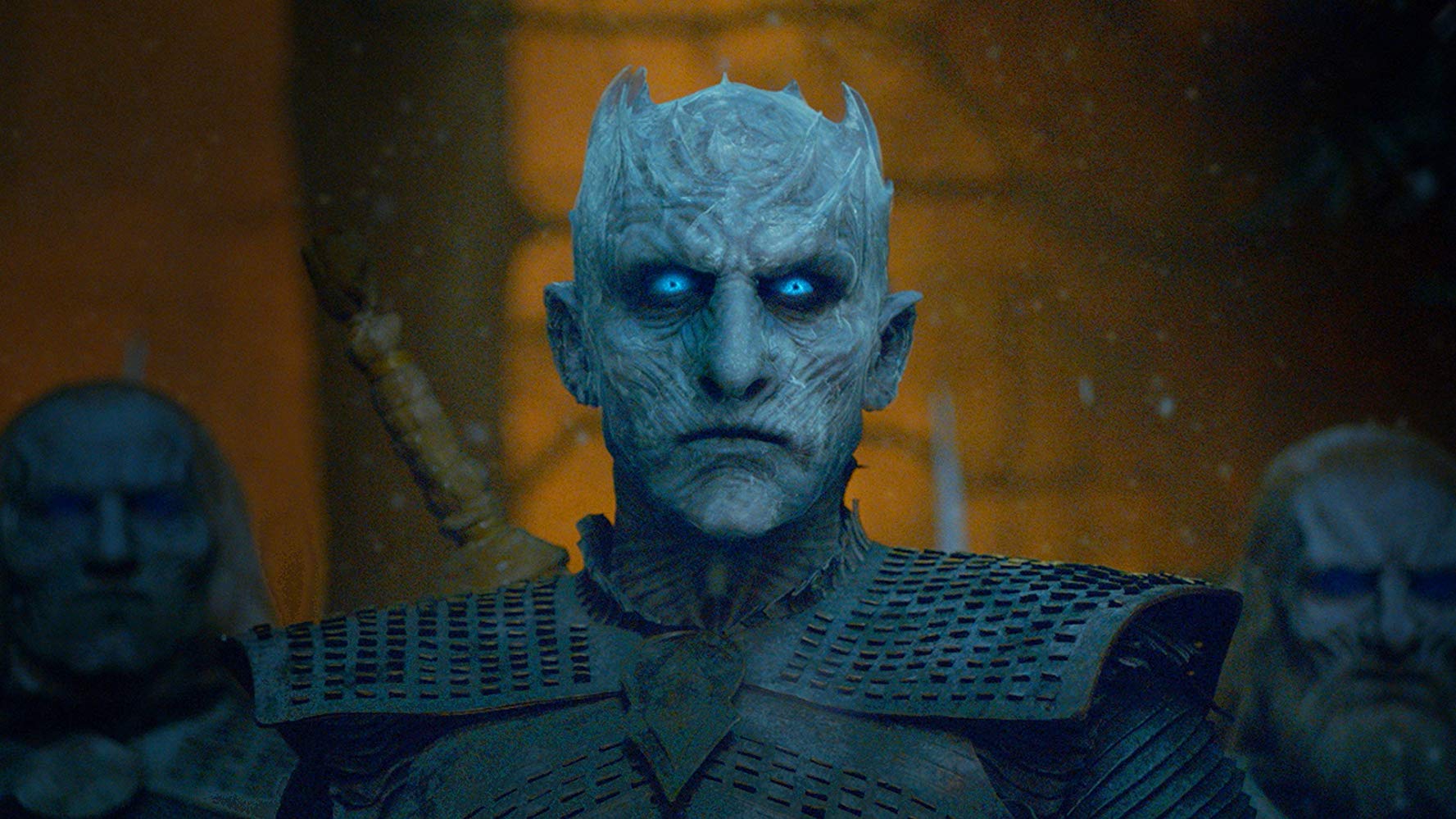
The Long Night, by the way, was entirely too long. It's one thing to have the longest battle scene in the history of film, it's another to use that to move characters along. There was some good stuff from those in the crypt, the always incredible Lady Mormont and Arya, but the show could have done of a better job of moving around the other pieces.
Yes, a lot of big characters died, but it also clearly put a lot of other characters in tight situations and then cut away. When we come back, they're still alive, and viewers are left thinking "plot armor". That's a sin in a show that's supposed to punish characters in tough situations.
If you've watched any Game of Thrones episode, you know that there's an aftershow with D&D explaining their thinking when making the show. It's usually pretty insightful, but it also feels like it's sometimes used as a crutch to explain things that shouldn't be explained.
For example, Dany forgetting about the Iron Fleet. It's not too difficult to show us Dany getting excited and foolish about taking King's Landing, maybe with a couple characters unsure of what she's doing, and to then get surprised by Euron and the scorpions.
That eventually brings us to Dany, powered by an incredible performance from Emilia Clarke. She killed it in the final three episodes, nearly pitch perfect in every moment.
Her turn is a good one, and it's one of the things that feels adequately set up in these final few episodes. Dany has consistently shown us how brutal she is, and how she's come to believe in her own destiny. This was reinforced when she would free people, but the problem with Dany is that she's always been a liberator.
She didn't have a great time being a ruler in Mereen, and being able to play the game and run a city is something she needed to learn. Her decisions landed her in hot water and almost ended her and her people, but she's bailed out by her dragons, the crutch she leans on when things get hard. With no real support around her, only perceived enemies, she decides to give in to her worst instincts.
She later tries to justify herself, saying that Cersei put her in a tough spot, which I can see. We live in a world where evil people use hospitals and children as human shields, and perceived good guys bombing those places risking the collateral damage because the ends justify the means. In Game of Thrones, power corrupts, and Dany felt like she had no other choice than to burn down King's Landing to take what is hers.
There's also something to be said about how people can root for horrible things if they're done to bad people. Dany burned people alive for not submitting to her, crucified people without trials and took a tyrant's approach to many things - like wanting to ban Mereen's gladiator-like fights because she found it barbaric. These are the actions of a tyrant, yet we forgave them because they were done to people we didn't like, including the Tarley's, who we saw mistreated Sam and were aligned with the Lannisters.
We always root for the worst for our enemies, forgetting that it often makes us as bad. This happens often in the real world, with people having one set of principles for one set of people, and not extending those to others. Dany could never truly break the wheel with her attitude, because her actions always made her a spoke in the wheel.
On the other side of this is Jon Snow, who always tries to do the right thing, like tell Dany that he's Aegon Targaryen, true heir to the Iron Throne. Like Ned Stark, and even Aemon Targaryen, Jon's great uncle and fellow member of The Night's Watch, Jon can't play these games. He doesn't want the throne, he only wants to help people.
But this is not a world for Jon, and he throws away any claim to the throne by killing Dany. You can see that he's shaken up by his action, and when he's told he'll go to The Night's Watch again he can barely see past trying to figure out if he did do the right thing.
It's a rather tragic end for a character so many people believed in, but it was the right end for Jon. He's one of the few people on the show that's willing to do the right thing, even if the consequences are fatal for him. While he clearly loved and believed in Dany, even giving her a chance to prove him wrong, he knew killing Dany was the only way to stop her from doing to Winterfell what she did to King's Landing.
I will say that the little discussion between Jon and Tyrion is quite compelling, it's exactly the kind of breather we needed after the sacking of King's Landing. But I do wish we had more of this with other characters, as they shifted focus from Cersei to Dany, when she clearly becomes a major threat. Westeros is a vibrant world, and I wish we got to see the reaction of that world to a Targaryen burning down the capital, and the object of desire for so many people.
It was especially bad not showing what happens to Jon immediately after killing Dany was a mistake. Does Greyworm find him? Does he struggle with wanting to kill Jon but realize he's valuable as a prisoner? Does he believe his Khaleesi would have taken Jon hostage? Is Jon so overcome with guilt that he goes and confesses to Greyworm, surrendering himself and making killing him immediately a bad option? We don't know.
It's also clear that Dany's death drove a large wedge between kingdoms. The Iron Isles were pissed, as was Dorne. We didn't get to see that, and how much leverage Greyworm and the rest actually had. It's also clear that most people are beyond Jon's lineage once he kills Dany.
Jon's lineage ended up driving much of the final season of the show, and while it wasn't used to hand him The Iron Throne, like people may have expected, it's far more interesting to see that information used to drive wedges between characters and change destinies.
Then there's Jaime and Cersei. The two entered the world together, and left together. In the end, Jaime couldn't come to grips with the fact that he might actually be a decent person, and he couldn't forgive himself for all that he's done. He tried with Brienne, someone he genuinely loved, but the toxicity of his relationship with Cersei was too much to overcome.
Again, there's a bit of whiplash here. I wish we had one or two more moments to let his decision to leave Brienne have a little more understanding. Speaking of Brienne, it's lovely to see her as the head of the Kingsguard. Even better was her moment writing Jaime's story in the Book of Brothers, we'll get to why a little later.
An even more compelling end was the battle between The Mountain and The Hound. This was perfect, and only fitting that The Hound kills his brother with fire, which The Mountain used to scar The Hound.
The end of Varys was quite sad, and there was some sly work here showing him trying to end Dany, but it wasn't enough. He tries to poison her, he's writing letters that don't seem to go anywhere, but at least he tried - I guess. Varys is one of the characters that hurts the most from the decision to focus on spectacle and not character.
The Iron Throne
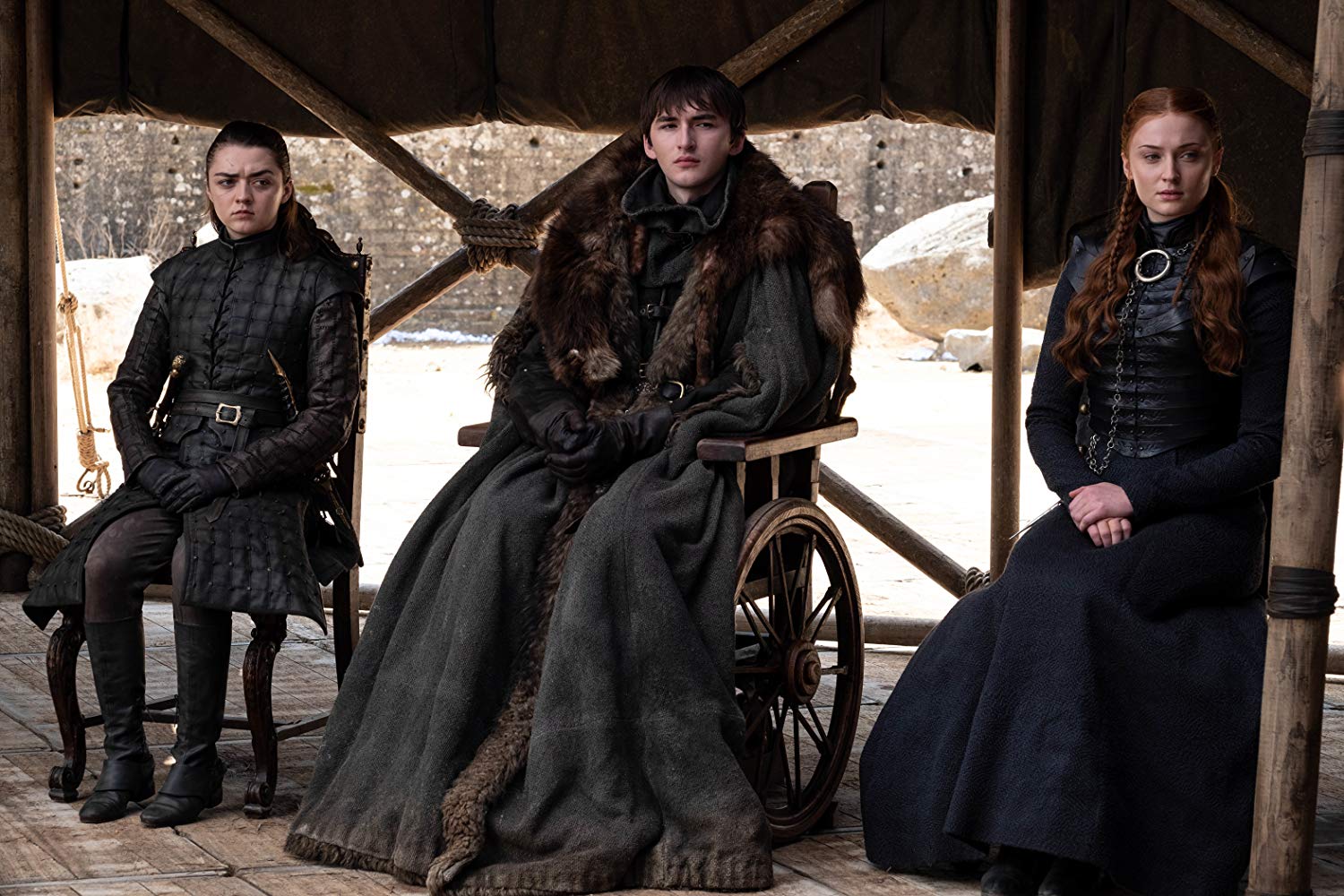
Let's get to it. Bran the Broken is the king of the six kingdoms, as Winterfell gets to remain independent. Bran's rise to the throne raises a lot of questions, but it's a move designed to cap off Game of Thrones with a thematic stamp.
The show itself is heavily influenced history, namely the War of the Roses, and it's a show where characters take great pride in continuing and creating history. Viserys and Dany want to shake off their families history and reclaim what is theres, for example.
Every kingdom is after The Iron Throne because it's the ultimate stamp for your house, you are etched into history, and the winner gets to tell the stories. We see this in the play Arya watches, which perverts the story of Joffrey. It's also why Brienne filling out Jaime's story is great, as it goes from simply referring to him as the Kingslayer to filling out all of his accomplishments, and how he was so much more.
This is the wheel in motion, people fight for the throne using all kinds of dirty tricks, and then the winners write their history. Game of Thrones is a show about how those histories aren't black and white, good vs evil, they're filled with grey and tough decisions and compromises.
You only need to look at the creation of The Night King, which was enabled by the Children of the Forest to protect itself from men, but they eventually lost control and The Night King became one of the biggest threats on the show.
That is why Tyrion not being mentioned in A Song of Ice and Fire works so well. He's not an outward hero, he's a character who has done some bad things but mostly worked behind the scenes to help keep the world alive. It's not exciting, but it's essential.
Tyrion's end is one of the more satisfying, largely because he's one of the few characters that is both smart and good. Or, well, as good as you can get. He started as a playboy with quite an ego, knowing or thinking he's more clever than anyone else, and he gets humbled by the end. He fights for things bigger than himself, he realizes that he's not as clever as he thinks, though he's still clever, and he has no insane lust for power.
Defying Dany is one of the bravest things he's done, and he's able to use his oratory skills to get Bran the throne. He's always made a fitting hand, though he's also failed in a number of ways the first two times around - this time may not be too different, but at least he's humbler and realizes there is a limit to what he can do. I will also say that like Clarke, Peter Dinklage was immense. His reaction to seeing Jaime and Cersei under those rocks was brutal, and at times he single-handidly sold the horror of Dany's actions (which is why that sequence could also be shorter).
Game of Thrones is a show about how power corrupts, and how pursuit of it can turn good people like Stannis Baratheon into people willing to take drastic action to pursue their goals. Stannis' descent into madness.
All of this is why Bran being king makes sense. He knows the full history of Westeros, which theoretically makes him suited to making the wisest possible decisions. He knows the past and future, and can likely take actions to help the most people possible.
He also has a good story. Does he have the best story? Nah, but that's not the point. The point of Tyrion's story pitch is that he has a story that can unite the most people. Jon lost the Unsullied, Dorne and the Iron Isles when he killed Dany. Sansa would make a good queen but she would clearly favor Winterfell over everywhere else, and her support of Jon and hatred of Dany would not make Dorne or the Iron Isles great subjects. Arya also has a great story, but she's always been a lone wolf, not a leader of people.
And of course, as Ser Davos says, everyone is friggin' sick and tired of war and fighting. People are craving peace, and Bran the Broken seems like the best choice to deliver that peace. I wish we had gotten a couple scenes showing everyone exhausted from this big political game and craving peace, as that would have gone a long way to underlining Bran's ascent.
The biggest question from Bran as king is, well, it's clear that Bran set himself up to be king. He gave Arya the dagger to kill The Night King, he pushed Sam to tell Jon the truth about his lineage, and then told Sansa and Arya, who then told Tyrion, who told Varys. Jon of course told Dany, which helps break her down and burn King's Landing, which seals her fate, which seals Jon's fate, which opens up the throne to... Bran.
But the question is why. We don't know enough about Bran to know whether he knows he's the best choice for the throne or whether he wanted it all along. We don't know his motivation, and can only guess.
In any case, the show seems to make gestures that everything is happy, but then we see that final Small Council meeting, in which we see the Small Council bickering as always. In a nice bit of metaphor, Tyrion straightens the chairs only to see other people come along and mess those chairs up. No matter how hard you try, people are going to be people and you won't have control of them.
So while we get some sweet endings for characters, like Sansa as Queen of the North, Arya roaming free like her dire wolf, Nymeria, and Jon Snow free with the wildlings (the Night's Watch bit was clearly a ruse to appease the Unsullied, Iron Isles and Dorne), we also see that progress is slow.
A lot of characters did big, important things - heroic things - and it took a lot of actions by people trying to go from absolute monarchy to something that has vague hints of a republic. With or withoout those people, the world continues to turn.
And now, our watch has ended. We won't fully know how influential Game of Thrones will be for years. What D&D have done is incredible, taking a book series many thought was unfilmable and putting together one of the best shows of all time, despite the pitfalls of its ending. I'm not sure there'll ever be anything quite like Game of Thrones ever again, with its unique blend of beloved characters, excellent drama, wonderful writing, epic scope and the ability to speak to a mainstream audience. So thank you to all the cast and crew who put this show together, and thank you for reading along.
